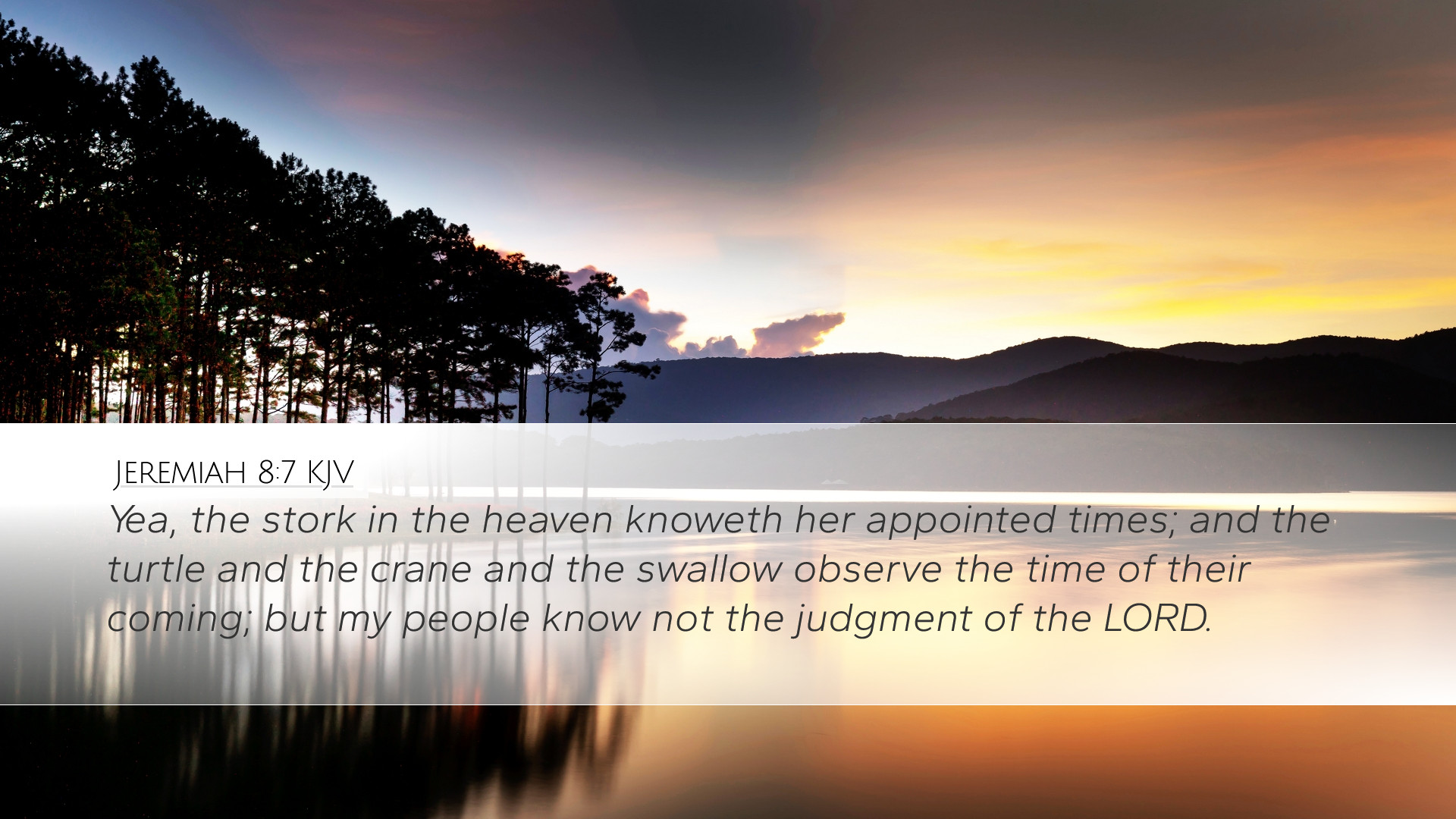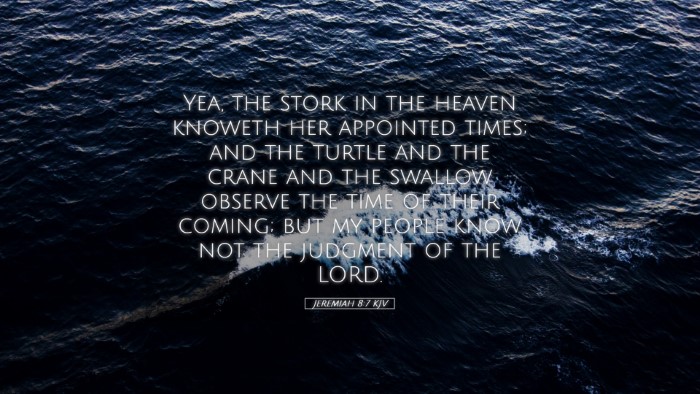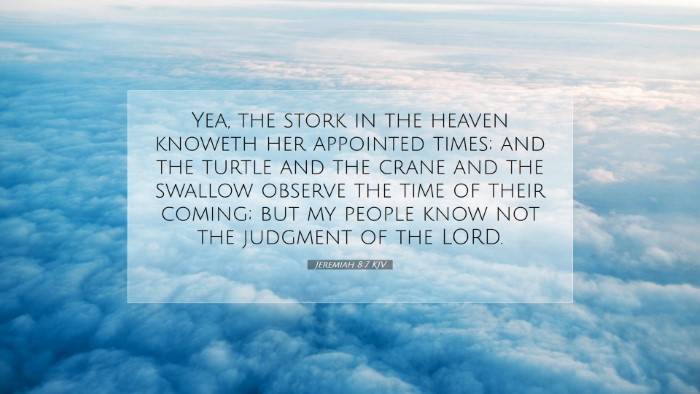Commentary on Jeremiah 8:7
Verse: "Yea, the stork in the heaven knoweth her appointed times; and the turtle and the crane and the swallow observe the time of their coming; but my people know not the judgment of the LORD." (Jeremiah 8:7, KJV)
Introduction
This verse from Jeremiah portrays a poignant contrast between the instinctual behavior of birds and the spiritual ignorance of God's people. The prophet Jeremiah, known as the weeping prophet, addresses the moral and spiritual decay of Israel, highlighting their failure to recognize and respond to God's will and judgment.
Exegesis of Jeremiah 8:7
Natural Instincts vs. Spiritual Awareness:
- Storks and Their Times: The stork is noted for its migratory patterns, an instinct carefully adhered to each season. This symbolizes the reliability of God's created order and the faithfulness of nature in following divine patterns.
- Other Birds Listed: The mention of the turtle, crane, and swallow further emphasizes the theme of knowing and obeying the appointed times, illustrating the Creator's design embedded in creation.
Comparison to God's People:
Jeremiah's rhetorical question implies a failure among Israel to recognize the signs of impending judgment. While nature innately adheres to God’s timing, His people lack that understanding and obedience. This oversight of God's judgments and the call to repentance leads to severe consequences for the nation.
Theological Insights
- Divine Judgment: The verse serves as a stark reminder of God's justice, pointing to a critical understanding that God's judgment is not arbitrary but aligned with His covenant with Israel.
- Covenant Relationship: The ignorance of God’s people can be seen as a breach of covenant. Knowledge of the divine judgment reflects a deeper relationship wherein the people are expected to recognize their covenant responsibilities.
Commentary from Matthew Henry
Matthew Henry emphasizes the irony present in this verse. He notes that if even the birds are observant of their times, God’s people fail to understand the signs around them. This ignorance comes from a heart turned away from God. Henry insists that this serves as a wake-up call to spiritual lethargy, leading to disastrous consequences if unaddressed.
Insights from Albert Barnes
Albert Barnes expands on the concept of “knowing the judgment of the Lord.” He interprets it as an awareness of divine retribution that should guide moral actions. Barnes suggests that the people of Judah are not only ignorant but also willingly blind to warning signs, having forsaken their covenant and the commandments that define their relationship with God.
Adam Clarke's Perspective
Adam Clarke draws attention to the specific birds mentioned, discussing their migratory behaviors as emblematic of natural law, which is consistent and unwavering. He argues that if God’s creations are faithful to their appointed roles, then humanity is held accountable for their disobedience and failure to heed the prophetic warnings. Clarke notes that this reflects a greater spiritual blindness, where the people’s failure is not just inactivity but a deliberate rejection of God's voice through His prophets.
Practical Applications for Today
- Awareness of God's Timing: Just as the birds recognize their times, believers today are reminded to remain alert to God’s timing in their lives, especially regarding His will and judgment.
- Spiritual Vigilance: This verse encourages a call to vigilance and responsiveness to God's Word, urging congregations to return to diligent study and awareness of biblical truths.
- The Role of Prophets: The necessity of listening to God’s messengers is highlighted; Christian leaders should cultivate an environment where prophetic voices that challenge apathy and disobedience are welcomed.
Conclusion
Jeremiah 8:7 stands as a powerful admonition against spiritual complacency. As pastors, theologians, and students of the Bible grapple with these profound insights, they are challenged to pursue a deeper understanding of God's judgments and our response to His sovereign will. The comparison drawn between the instinctual behaviors of birds and the spiritual negligence of God’s people serves as a compelling reminder of the vital importance of awareness and obedience in the Christian walk.


